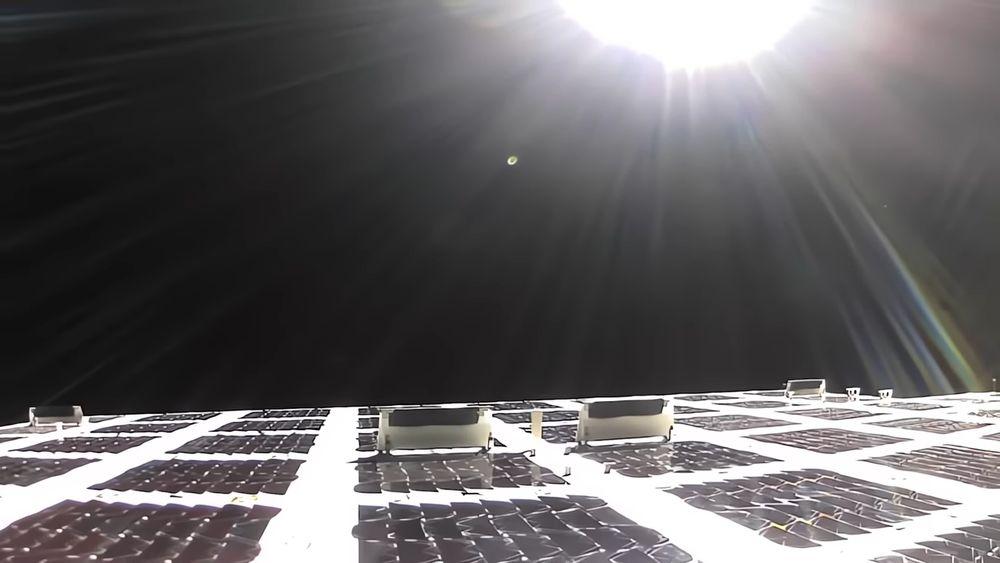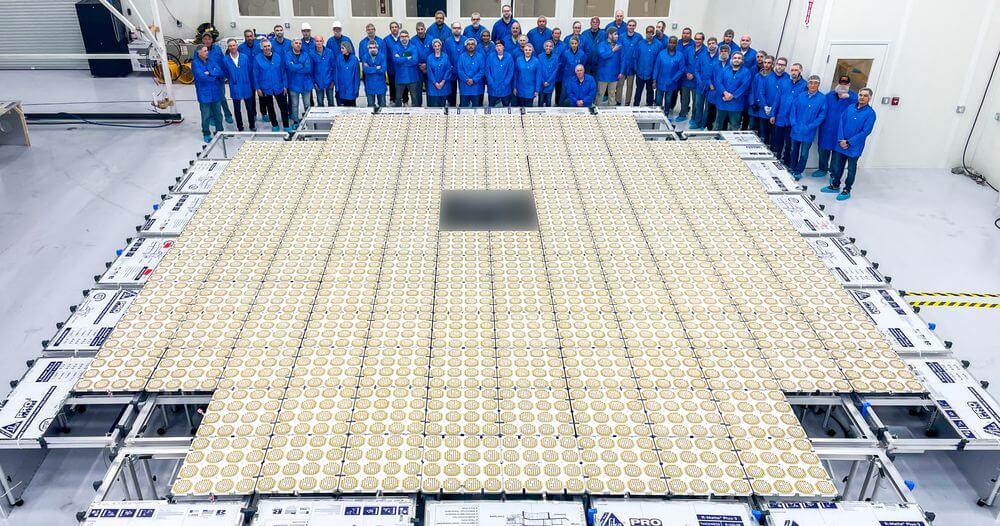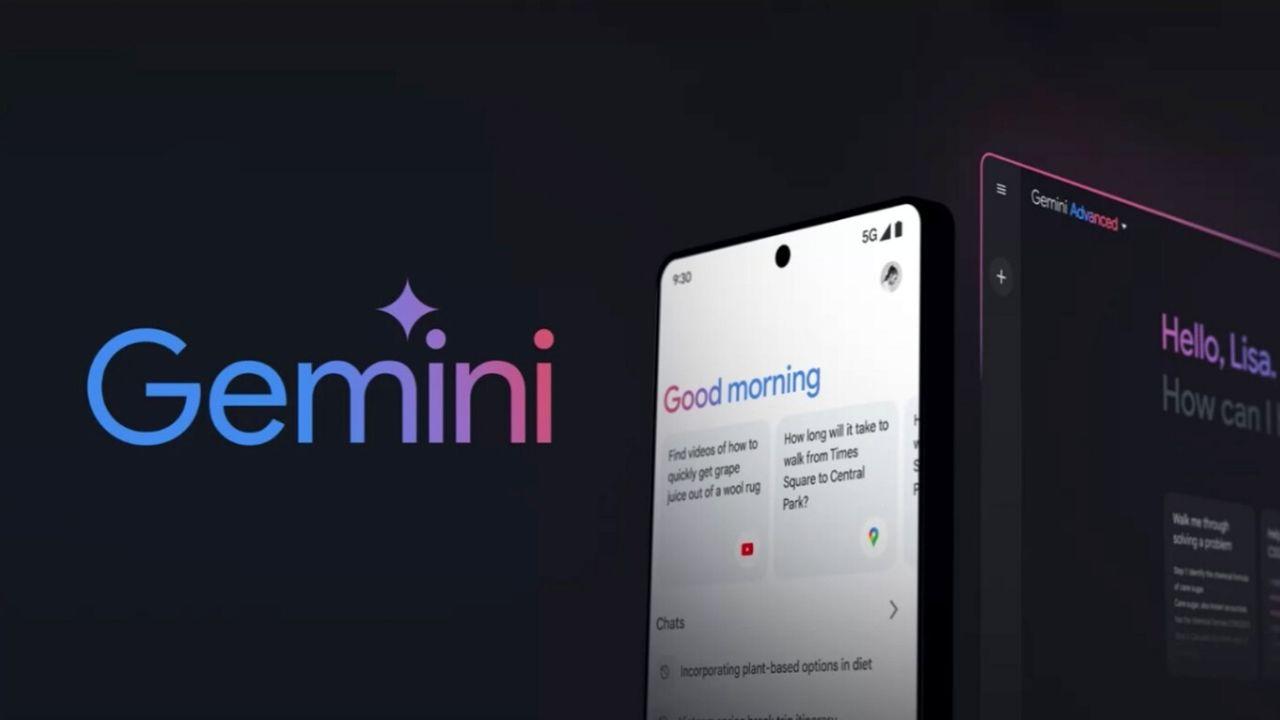The controversy is served. A group of scientists has put on the table a discovery that has not taken long to generate a long debate: there is a satellite that has become one of the brightest objects that can be seen in the sky. Many specialists are upset and believe that this is an unsustainable situation.
It should be a star, a planet or any other type of body, but not a satellite. That is what scientists from the International Astronomical Union explain in the report they published a few hours ago. They complain about how the BlueWalker 3 satellite prototype is generating a level of light unprecedented in its field. It is so bright that it is generating very bad reactions among those who observe the skies. And surely this name sounds familiar to you, since it is the satellite that AST SpaceMobile and Vodafone use for the tests they are doing of 5G via satellite, and which we told you about a few days ago.
The satellite of discord
In this situation there are two points of view that have quickly clashed. On the one hand, there are astronomers, who did not like at all that this satellite is in the skies emitting an exaggerated level of light. On the other hand, there are those responsible for AST SpaceMobile who do not speak of the lesser evil, but it is understood from their words that they are determined to continue deploying this type of satellites if that means being able to improve the telecommunications networks that people in the region use. whole world.
The shock is logical and suggests that, in the future, it could become even more serious. Neither party is expected to give in completely and there is no regulation that, at the moment, is putting control over the launch of new satellites. They say from AST SpaceMobile that their plan is to have 90 satellites with similar characteristics soon and they talk about how other parallel projects, such as SpaceX’s Starlink, will need thousands of satellites so that what are already called satellite constellations can be formed.
But is it really that serious?
In a way, yes. The satellite that AST SpaceMobile has put into the skies is huge. It is made up of two elements: a large antenna and the LVA vehicle itself. In combination, they occupy an area of 64 square meters that are already covered in the space permanently, at least for the moment. But the main problem that astronomers talk about is not size, which is undoubtedly exaggerated. The most worrying thing for them is the structure of the satellite and its reflective panels, in which the Sun’s rays are constantly reflected. That, astronomers say, turns the satellite into a giant mirror that throws light toward Earth, illuminating everything.

Due to this, an annoying effect is produced among those who observe the sky, both because of the prominence it steals from the elements that should really be observed, and because of the way in which it can affect calculations and analysis. In reality, scientists argue that the presence of this type of extra-illuminated satellites could seriously affect the work carried out in the analysis of the sky.
And, so that their point of view is taken into account, they make an important warning. Jeremy Tregloan-Reed, co-author of the study, says that satellites like BlueWalker 3 could affect the analysis carried out on the exterior of the Earth in relation to asteroids and possible impacts to which our planet is exposed. It makes it clear that, because of these satellites, the threat of an asteroid that could cause the extinction of the human race may be overlooked.

And what is going to happen from this point? The good news is that scientists and AST SpaceMobile members have started talking. The objective is to find a solution so that satellites can be in the skies without posing a risk to society or a nuisance to astronomers and amateurs. For now, AST says that they are studying several solutions that should allow their satellites to lose that reflective quality without affecting the satellite connection service.
They are also open to repositioning the satellites to areas where they do not produce any negative effects such as those that are being recorded so far. It doesn’t seem like things are going bad, but in the future we must not forget that there will be many more satellites in the skies. Will there come a time when it will be difficult to look at the stars the way we do now?












